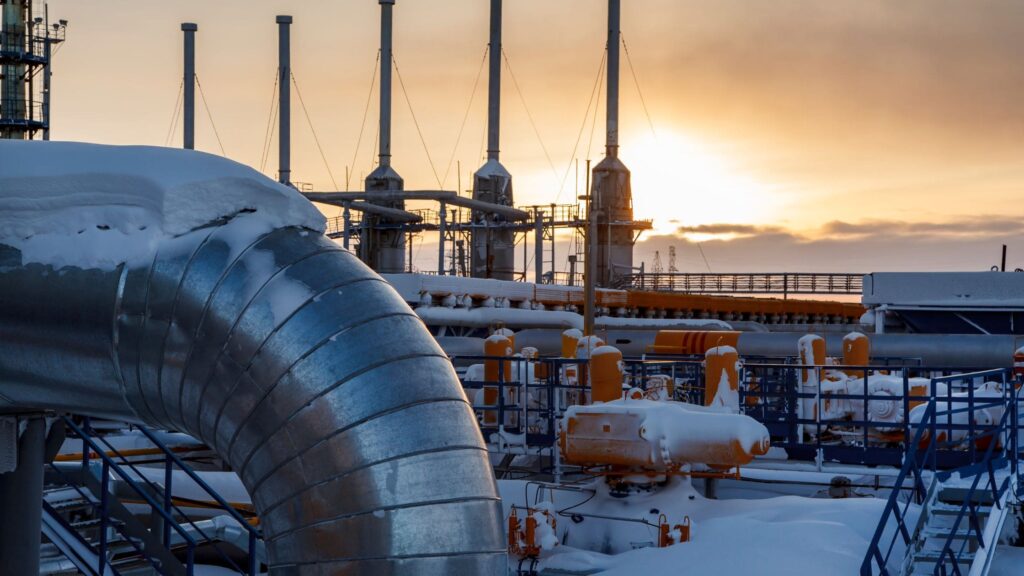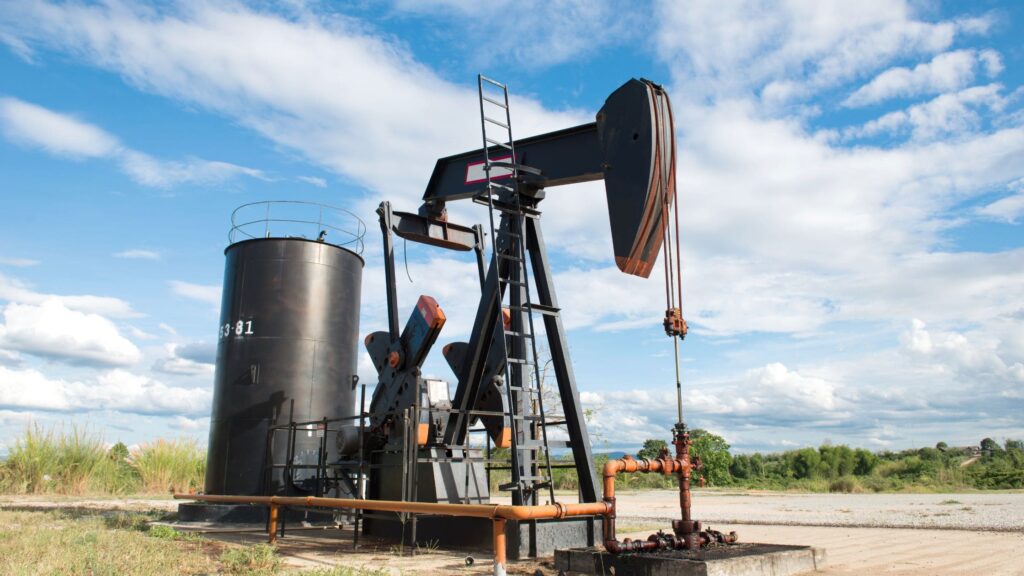What Is Oil And Gas Law?

The Oil and Gas law is a law governing oil and gas production. These oil and gas laws also dictate oil and gas ownership as well as the conditions miners should abide by if they are to harvest oil and gas.
A significant amount of oil and gas laws are state laws. While the federal government has little control over the oil and gas law, it is involved in oil and gas lease on federal lands and any federal offshore zone.
What Is The Meaning Of Oil And Gas Law?
Oil and gas law is an area of law regulating oil and gas mining, extraction, and all other oil and gas rights. It is important to note that oil and gas law varies considerably in the US than in other countries in Europe.
One of the reasons these oil and gas laws vary is because most times oil and gas are owned by private individuals, unlike various other countries where it is owned by the state or federal government. In oil and gas laws, there are two conflicting legal doctrines that cover oil and gas extraction, which are the correlative rights doctrine and the rule of capture. The oil and gas law is a combination of administrative regulations, statutory law, and common law.
What Does The Oil And Gas Law Cover?
These are all the significant areas that are covered by oil and gas laws;
Ownership And Property Rights
Oil and gas laws determine and establish ownership of oil and gas rights, which includes things linked to surface ownership, mineral rights, and other rights relating to the exploration and production processes.
Ownership
Oil and gas rights owners when it comes to this energy law have the authority to explore, develop, and produce oil and gas from specific reserves.
Who can own oil and gas?
Anybody that has the right to own property also has the right to own oil and gas rights. This means that companies can have oil and gas ownership, a group of people can own oil and gas, a person can own oil and gas, and even the state, local, and federal governments can own oil and gas.
What are oil and gas rights?
Oil and gas rights are one part of mineral rights. A specific area of real estate property could be rich in natural resources such as water or precious metals. Oil and gas could also be part of these natural resources.
Mineral Rights
- Mineral rights pertain to the ownership of minerals or other energy-producing substances that can be seen underneath the surface of an area of land, oil, and gas inclusive. One who has these oil and gas rights is fully authorized for oil and gas extraction and production and can also lease the rights to others.
Surface Rights
- Surface rights involve the ownership and use of everything above the subsurface of the land. There are cases where mineral rights and surface rights can be owned separately, which is known as a split estate.
Exploration and Production Rights
- These oil and gas rights give the owners the exclusive right to explore potential oil and gas reserves as well as the right to produce gas and oil from a specific land.
Leasehold Rights
- These are the oil and gas rights that are leased to third parties through lease agreements. The lessee is then given the right for exploration, development, and production of oil and gas for a particular period of time.
Royalty Interests
- A royalty-interest owner is granted a share of the revenue gotten after the oil and gas have been produced and sold. These oil and gas rights are there to compensate the owner.
Working Interests
- Working interest owners are made to bear a percentage of the responsibilities, risks, and costs when it comes to the activities relating to oil and gas in a certain area of land.
Transferability and Assignment
- It is possible to buy, sell, lease, or assign oil and gas rights to other parties. With this transaction, the transfer of ownership can be done smoothly, just like with other real estate property.
Correlative rights
- Correlative rights doctrine involves the responsibilities and rights of various operators or owners of overlapping or adjacent oil and gas reservoirs. This helps to ensure that every operator is given a fair and equal opportunity to benefit from the mineral resources.
Leasing And Contracts
Oil and gas lease agreements and contracts are very vital in all oil and gas processes. The oil and gas clauses help to govern the obligations and rights between the two parties involved.
Here are some main clauses and considerations typically found in oil and gas lease agreements and contracts:
Granting Clause
The granting clause identifies the oil and gas rights and interest granted by the surface landowner to the lessee (oil companies) for the exploration and production of oil and gas from the property line.
Bonus Consideration
This is also referred to as a lease bonus or signing bonus, and it is the upfront payment given o the lessor by the lessee as the lease agreement is signed. This is a one-time payment that is used to compensate the lessor for giving out the rights for the lessee to penetrate beneath the property.
Royalty Clause
The royalty clause states the share of the value of oil and gas production that the landowner is going to get as compensation. The lessee and lessor can negotiate the royalty rate and this can depend on factors like industry standards, market conditions, and location.
Operations and Development
This clause determines the responsibilities and obligations of the lessee when it comes to oil and gas mining and other related operations.
Surface Use and Access
The surface use agreement addresses the oil and gas rights and also restrictions of the lessee to have reasonable access and utilize the surface land for transporting equipment, construction of facilities, and drilling operations. It could also include obligations to minimize surface disturbances, restoration of the surface land, and provisions for compensation.
Assignment and Subleasing
This clause specifies whether the lessee has the right to sublease or assign its interests to third parties. It could also include the consent requirements of the lessor and other provisions for the sharing of obligations or profits.
Force Majeure
Force majeure addresses situations that cannot be controlled by the parties involved and may also impact their ability when it comes to fulfilling their obligations under contract laws. These situations include regulatory changes, war, and natural disasters. It outlines the obligations and rights of the parties when these situations arise including temporary suspension or termination of the lease agreement.
Indemnification and Liability
This contract under oil and gas laws has provisions for indemnification that specify the responsibilities of each party for the liabilities, damages, and losses that arise from oil and gas operations.
Termination and Surrender
This clause is one that defines the procedures and conditions for the termination of the lease agreement. This would normally include mutual agreement and the expiration of the lease term. It might also come with provisions for restoration requirements, the return of the leased property, and the release of obligations.
Dispute Resolution
Dispute resolution provides local control over disagreements and conflicts that could ensue between the lessee and lessor during the lease term. It proves the mechanisms and procedures for handling these oil and gas disputes. Dispute resolution offers a significant amount of help and the methods involve litigation, arbitration, mediation, and negotiation.
Confidentiality and Non-Disclosure
This clause makes sure that obligations are in place to prevent both parties from disclosing proprietary and sensitive information that was shared during the term of the lease agreement. Its main objective is to protect financial information, technical data, and trade secrets.
Governing Law
This law determines the jurisdiction whose laws would govern the validity, interpretation, and enforcement of the agreement. The governing law specifies the legal system to be used in cases where legal issues and disputes arise.
Regulations
These are the various regulations set in place to restrict certain activities when it comes to oil and gas production.
- Environmental Regulations: These administrative regulations under environmental law are there to protect land, water, and air resources from the negative impact of oil and gas extraction and mining.
- Health and Safety Regulations: Oil and gas production could pose health risks, so safety regulations are there to protect the communities, workers, and the general public.
- Market Regulation: The state or federal government might regulate oil and gas production to make sure there is energy security, prevent market manipulation, and ensure fair competition.
- Royalty and Taxation: To be able to get a percentage of economic benefits, the government would impose taxes and royalties on oil and gas production.
Importance Of Statutes And Regulations?
These are the reasons why regulations and statutes are important when it comes to oil and gas mining and other activities.
Licensing
Oil and gas licensing is the procedure taken by the state or federal governments to grant permits or licenses to individuals or companies for the exploration and production of oil and gas.
Here are key aspects of oil and gas licensing:
- Exploration Licenses: These licenses grant oil and gas companies as well as other energy-producing companies the right to carry out action in assessing oil and gas reserves in a specified area.
- Production Licenses: After discovering oil or gas in the exploration phase, then it is possible for the company to request a production license. This would then give them the right to develop and produce oil and gas from designated blocks or fields.
- Licensing Rounds: The state or federal government could conduct bid rounds or licensing rounds, which involve inviting companies to make competitive bids for available exploration areas or blocks.
- Licensing Criteria: There are some requirements and criteria that are set in place by the state or federal government that govern entities that wish to obtain oil and gas rights. These criteria could include local content commitments, environmental track record, technical expertise, and financial capability.
- Licensing Fees and Financial Obligations: These are the signature bonuses or fees that the federal government charge as a financial requirement to obtain licenses. The fees could differ due to the potential and size of the oil and gas reserves.
- Environmental and Social Considerations: Due to the fact that licensing processes could include social and environmental impact assessments, the oil and gas companies must show that they are able to engage local stakeholders and communities as well as comply with environmental impacts.
- License Terms and Conditions: The federal government have specific terms and conditions that govern oil and gas licenses.
- License Transfers and Renewals: It is possible to transfer oil and gas licenses, which would allow oil companies to buy and sell out their interests. These transactions are subject to government approval.
Contractual Agreements
There are different contractual agreements in the oil and gas law that help to govern the responsibilities and relationships among various stakeholders like investors, operators, and the national government. These agreements include;
- Decommissioning security agreements
- Confidentiality agreements
- Purchase and sale agreements
- Farm-in and farm-out agreement
International Agreements And Treaties
International agreements and treaties are available in the oil and gas law to help govern the development, exploration, and transportation of oil and gas resources.
Indigenous And Community Rights
Oil and gas operations are mostly done in places inhabited by local communities and indigenous people. This is why the oil and gas law aims to protect the interests and rights of these groups.
Energy Transition And Climate Change
The oil and gas law helps to provide considerations for fostering sustainable practices, promoting renewable energy alternatives, and reducing greenhouse gas emissions. These considerations include;
- Transition to renewable energy
- Carbon capture and storage
- Greenhouse gas regulations
Regulatory Compliance
The oil and gas law provides the basis for regulatory compliance and enforcement actions. Also, they determine the penalties for non-compliance including criminal sanctions and license revocations.
Decommissioning And Site Restoration
The oil and gas law has regulations in place to address the legal responsibilities and requirements for decommissioning facilities, abandoning wells, and restoring sites to their stipulated condition.
Production Restrictions
These are put in place to help meet environmental goals, maintain price stability, and also manage resource depletion.
Offshore Drilling
There is offshore and onshore oil and gas prospect. There are safety standards in place to tackle the risks and challenges that arise due to offshore drilling.
Foreign Investment Considerations
The oil and gas sector is bound to attract foreign investment and that is why the oil and gas law helps to regulate and facilitate foreign investment as well as issues that may arise like ownership rights restrictions and property boundaries. Any law firm that practices oil and gas law would be able to give in-house counsel on this.
Anti-Corruption
The oil and gas law under state law helps to fight against the corruption risks in the industry. There are legal frameworks in the oil and gas law that help to combat money laundering, fraud, bribery, and other corrupt acts.
Pipeline Transportation And Infrastructure
Pipeline transportation and infrastructure are very important in the oil and gas sector. The oil and gas law provides a legal framework for environmentally safe operations.
Pipeline Agreements
These agreements offer a framework for transporting oil and gas resources and also address different legal, financial, and operational aspects.
Regulatory Approval and Compliance
Regulatory Approval and Compliance are vital to make sure there is a legally compliant operation of pipeline transportation and infrastructure in the oil and gas sector.
Pipeline Safety and Environmental Risks
There are certain environmental risks associated with pipeline operations, which is why stringent safety measures are established to curb these risks.
Arbitration And Litigation In Oil And Gas Disputes
It is very common to have disputes in the oil and gas sector, which is why the oil and gas law helps to provide a legal work-around for settling these issues through litigation or arbitration.
Intellectual Property In The Oil And Gas Industry
The oil and gas law has statutes in place to help protect intellectual property rights such as trade secrets, copyrights, trademarks, and patents.
Cybersecurity In The Oil And Gas Industry
Cybersecurity is a crucial concern since the oil and gas industry now relies more on digital technologies. This is why there are regulations in the oil and gas law to help protect the system from cyber threats.
Conclusion
Oil and gas law is a type of energy law having its majority as state law, but federal law might also apply. This law regulating oil and gas, including the oil and gas lease, helps energy production and also helps landowners manage their natural resources.
Oil and gas lawyers represent landowners and energy-producing companies. It is highly important for oil and gas attorneys to understand everything about oil and gas laws. Also, you should familiarize yourself with the oil and gas law if you are planning to apply for oil and gas rights.





